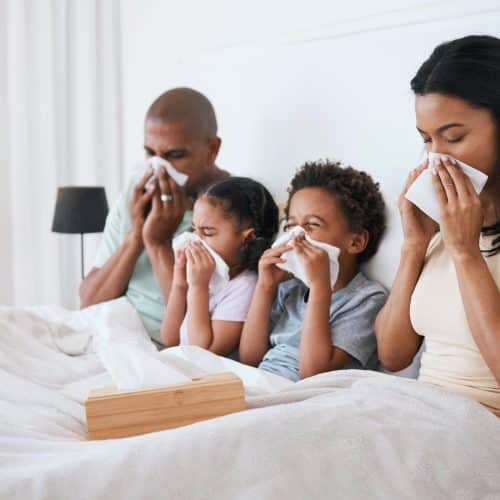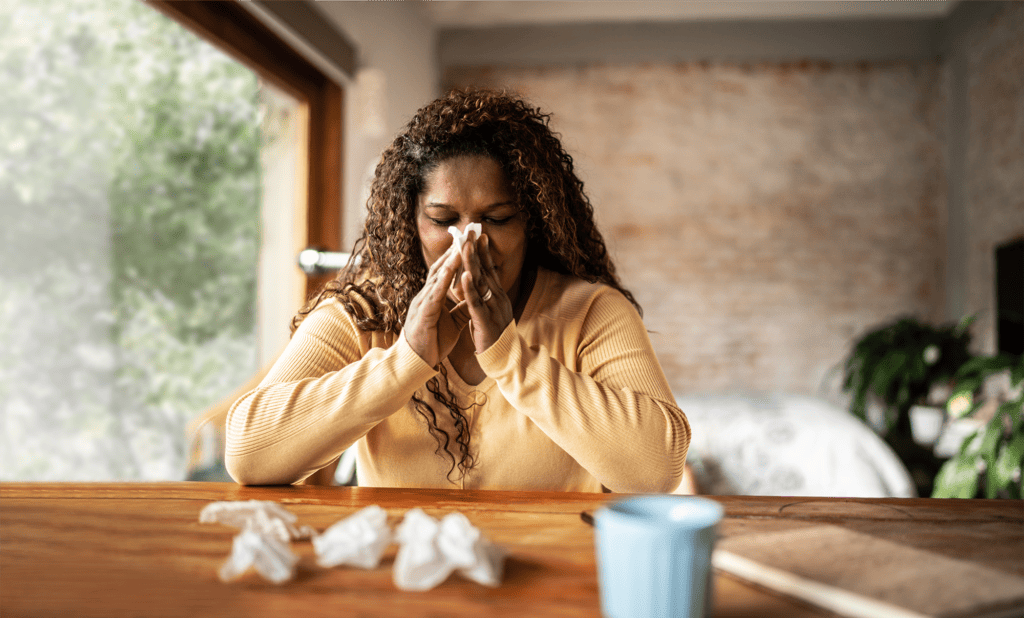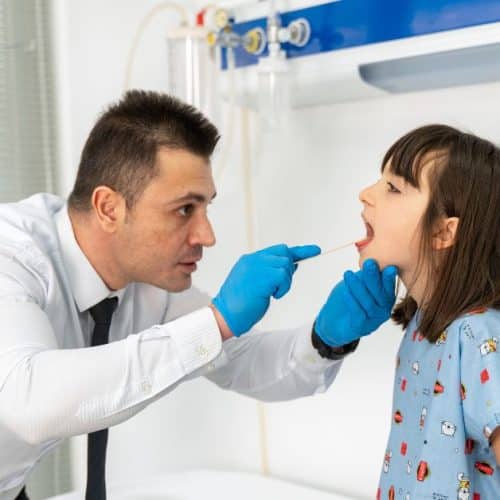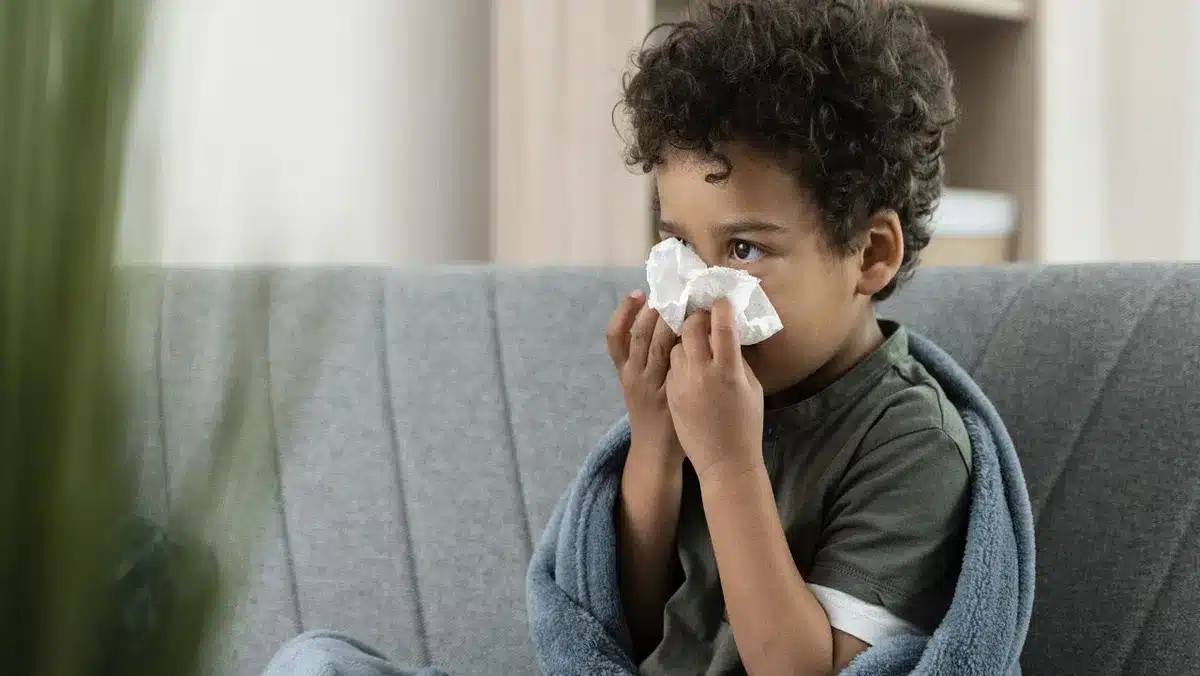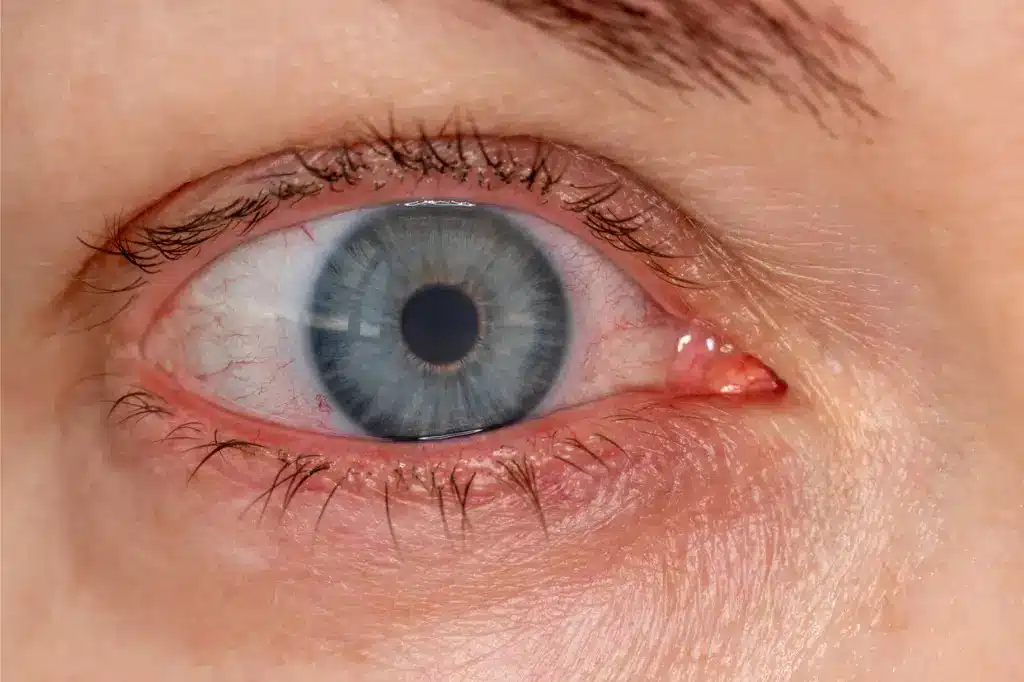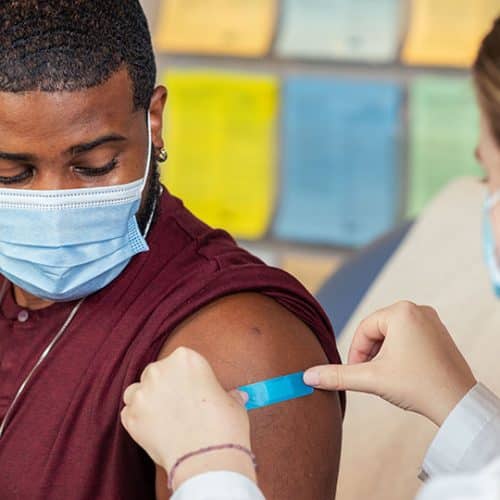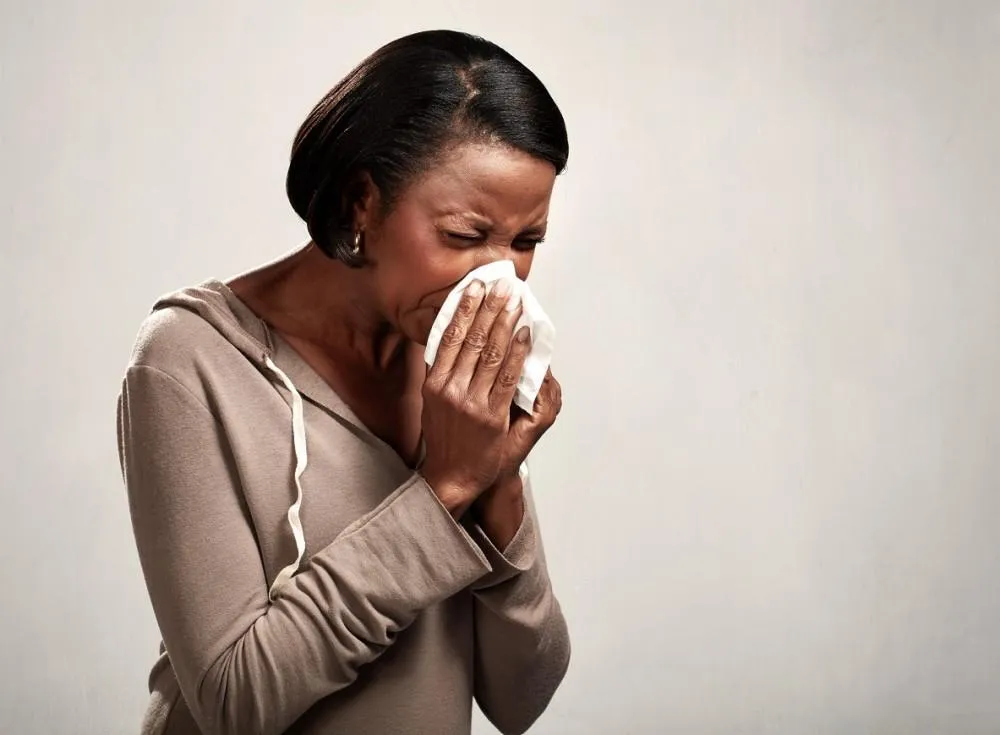What is Croup?

What is croup? It is a syndrome characterized by swelling of the larynx, which occurs against the background of various infectious and inflammatory diseases of the respiratory tract. Croup is also called stenotic laryngitis. As a rule, it occurs in childhood and is the main cause of obstructive lesions of the respiratory tract. The most vulnerable age is in children from six months to 6 years. In most cases, timely croup treatment helps to reduce symptoms within an average of 2 days. However, about 5% of children require inpatient therapy. A severe case of croup is more often diagnosed in children who already have narrowing of the upper airways, allergies or gastroesophageal reflux.
Most cases of croup appear in the fall or early winter, during the peak of acute respiratory viral infections (ARVI). The severity of croup symptoms often increases at night and decreases during the day. It’s important to visit your primary care physician regularly to monitor your overall health.
Causes of Croup
Croup is most often infectious and occurs when bacteria, viruses, or fungi enter the child’s respiratory tract. When inhaling infected air, the pathogens settle on the larynx, causing an inflammatory process in the respiratory tract. Croup symptoms can develop on the background of acute respiratory viral infections, influenza, measles, chickenpox, or infection with staphylococcal, streptococcal, or Hemophilus bacillus.
Can adults get croup? The allergic form of croup occurs in children with allergic reactions to external irritants (pollen, animal hair, dust mites, cosmetics, drugs, etc.). True croup occurs only because of diphtheria bacillus.
Normally, a healthy body is able to independently fight the infection that has penetrated into the respiratory tract. The occurrence of inflammation is preceded by a decrease in the immune forces of the child’s body. Such a situation can occur with hypothermia, avitaminosis, the presence of chronic diseases, and frequent contact with the sick. At a younger age, croup is prone to low-birth-weight children, children who have undergone hypoxia, birth trauma, or suffering from rickets.
Symptoms of Croup
Croup in adults causes severe swelling of the larynx and spasms of the laryngeal muscles. Also, a lot of phlegm accumulates in the throat. This makes it difficult to breathe and reduces the amount of air entering the lungs, which can lead to oxygen deprivation. The degree of oxygen deprivation depends on the stage of the disease. In the initial stages, the respiratory muscles try to compensate for the lack of oxygen. But if the larynx narrows too much, oxygen access can stop completely. If you experience non-emergency symptoms, you can visit urgent care in Gaithersburg without needing an appointment.
Early Signs of Croup
What does croup sound like? Early recognition of croup symptoms is essential for prompt treatment, especially in young children. The following are common early signs of croup:
- Barking cough
- Hoarse voice
- Stridor
- Runny nose and cold symptoms
- Mild fever
- Difficulty breathing
- Worse symptoms at night
Recognizing the Distinctive Croup Cough
Croup, a common childhood illness, is characterized by a unique barking cough that often sounds like a seal. Other accompanying symptoms that may present with this particular cough include hoarseness of voice, difficulty breathing or wheezing, rapid respiratory rate, and stridor.
Along with the barking cough, many children may also have stridor, a high-pitched, wheezing sound when breathing in, particularly during coughing fits. The voice may sound hoarse due to the inflammation of the vocal cords, further distinguishing the cough from others. Parents often ask about croup when to worry; if stridor occurs at rest or symptoms worsen despite home treatment, it’s time to contact a doctor.
Severe Symptoms and Complications
What causes croup? Although croup most commonly passes without serious consequences, in some cases it can be very dangerous. Complications can range from mild to severe and require extra attention and possibly emergency medical attention. Among the most common complications of false croup are:
- Hypoxia: Lack of oxygen in the blood due to labored breathing. Hypoxia can lead to lividity of the skin (cyanosis), rapid heartbeat, and fatigue.
- Respiratory failure: The most serious complication resulting from significant narrowing of the airway, requiring immediate medical attention and possibly mechanical ventilation.
- Secondary bacterial infections: Inflammation caused by a viral infection can create a favorable environment for bacterial entry and multiplication, which can lead to the development of bacterial tracheitis, bronchitis, or pneumonia.
- Dehydration: Children may drink less fluids due to difficulty swallowing and loss of appetite, leading to dehydration.
Severe croup symptoms may include:
- Difficulty breathing
- Stridor (a high-pitched, whistling sound when breathing)
- Retractions (when the chest muscles pull inward)
- Cyanosis (a bluish discoloration of the skin)
Understanding croup and when to worry includes watching for different symptoms, all of which may indicate the need for urgent care.
Diagnosis of Croup
The doctor should determine its etiology to select the optimal therapy. To do this, the specialist conducts an examination of the child’s nasopharynx. The final differentiation of true and false croup helps the bacteriological examination of swabs from the pharynx. The detection of diphtheria bacillus 100% shows true croup.
After making a preliminary diagnosis, the child is referred for an additional exam. In some cases, some tests may be necessary to confirm the diagnosis, such as:
- X-ray: A chest X-ray can help rule out other conditions that may be causing similar symptoms.
- Pulse oximetry: This test measures the oxygen level in the blood.
- Laryngoscopy: A procedure that allows the doctor to examine the vocal cords and larynx.
Based on the results obtained, the specialist determines the severity of throat lumen narrowing and selects the most effective treatment in a particular case. For example, RSV treatment typically focuses on symptom management, including hydration, fever reduction, and in severe cases, oxygen therapy.
Treatment Options for Croup
Croup treatment is aimed at restoring normal patency of the larynx, reducing tissue swelling, relieving spasms, and removing sputum from the respiratory tract. The choice of the group of drugs directly depends on the nature of the occurrence of the disease. So, with allergic croup, the patient is prescribed the reception of antihistamines and glucocorticosteroids. With the infectious nature of the pathology are prescribed antitussive drugs, and then antibiotic therapy or antiviral therapy is carried out.
In addition, the following means can be prescribed:
- nonsteroidal anti-inflammatory drugs;
- anti-spastic drugs;
- cough suppressants;
- mucolytics;
- sedatives.
In the absence of positive results with conservative treatment for croup, surgical intervention may be required. The following surgical methods can be used to restore the laryngeal lumen:
- Laser or radiofrequency laryngeal reconstruction;
- balloon reconstruction.
Preventing Croup
Croup prevention means to avoid the spread of viruses. With this purpose, it is recommended to observe the following rules:
- wash hands thoroughly with soap and water after contact with an infected person;
- wear masks and change them regularly;
- isolate sick children from kindergartens and schools;
- regularly room cleaning.
In addition, specific preventive care of croup is widely used, aimed at activating immunity against specific pathogens. Influenza vaccination is indicated for children and adults during the flu season. Adults and children are also indicated to receive a vaccine against Hemophilus influenza infection caused by type B.
When to Seek Medical Attention
An important aspect of croup treatment is educating parents on the proper steps to take when symptoms worsen and how to provide first aid. Understanding when to seek medical attention and how to relieve croup symptoms is key to successfully managing the condition.
The right approach to treating false croup can quickly reduce the severity of symptoms and improve the patient’s overall condition. Timely referral to specialists and strict adherence to their recommendations contribute to a speedy recovery and prevent the development of complications. Appointing a back-to-school medical check-up helps parents be confident that their child is healthy.
If the child’s croup symptoms increase or new signs of the disease appear, he cannot breathe, and there are serious complications, he should contact a doctor as soon as possible. This will help to prevent the development of more serious and dangerous diseases. Understanding the difference between COVID and flu is important, as both share similar symptoms
Conclusion
Croup is a condition that can be stressful for parents and children alike. However, when your child has such symptoms, you should pay attention and take any further steps if he or she worsens or becomes very ill.
If you suspect that your child may be suffering from croup, visit your healthcare provider for proper diagnosis and treatment. This will also help with some complications and improve the recovery time.



